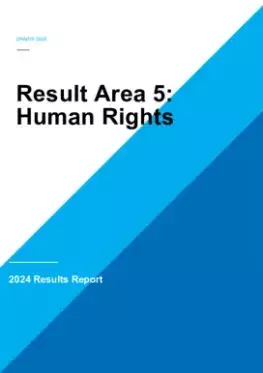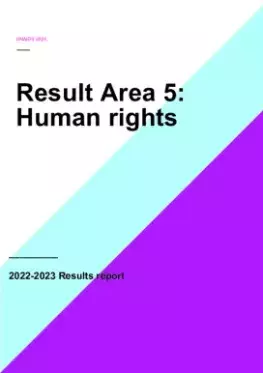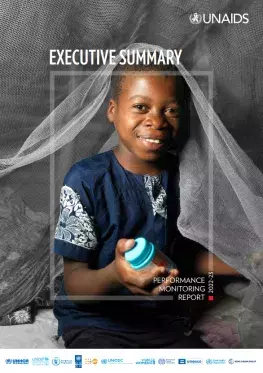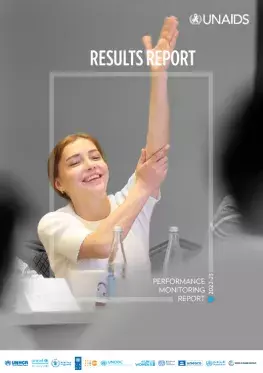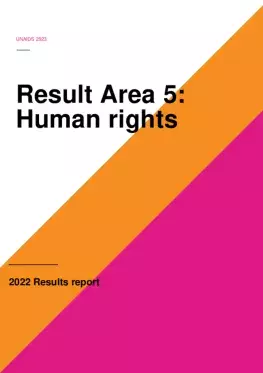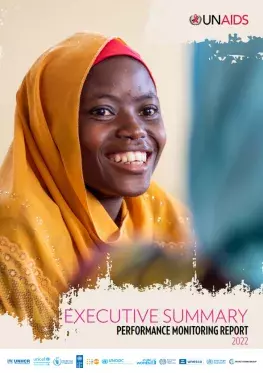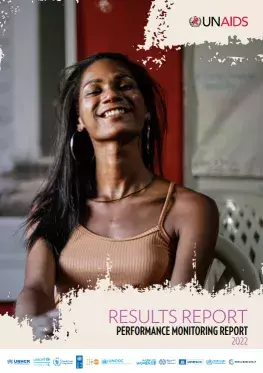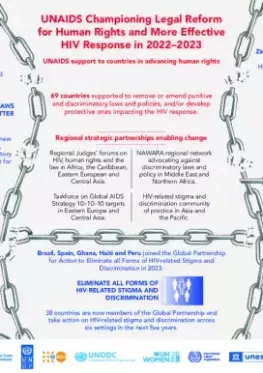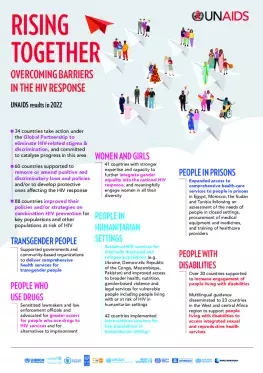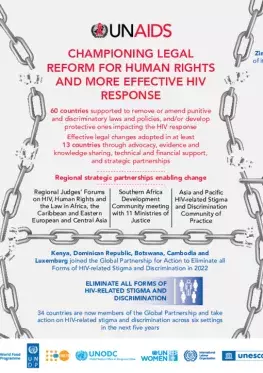The Joint Programme remained a global leader in aligning HIV responses with principles of human rights, gender equality and social inclusion. On World AIDS Day 2024, UNAIDS Take the RIGHTS path report publicized examples from around the world of proven policies and programmes that are protecting health and HIV services by protecting people’s rights. In 2024, the Joint Programme supported 72 countries to remove or amend punitive and discriminatory policies and/or develop protective ones affecting the HIV response.
The Secretariat and Cosponsors played a central role in securing new global landmark commitment on human rights such as the consensus adoption by UN member States of the groundbreaking UN Human Rights Council Resolution 56/20, "Human Rights in the Context of HIV and AIDS”, which explicitly recognizes the human rights of key populations. The resolution urges states to review or repeal restrictive, punitive or discriminatory legal and policy frameworks that adversely affect the successful, effective and equitable delivery of HIV services. It also calls for the development of sexual and reproductive health services and education programmes, specifically for adolescents, young persons and persons with disabilities.
The Global Partnership for action to eliminate all forms of HIV-related stigma and discrimination (co-convened by the Joint Programme, Global Fund and Global Network of People Living with HIV) continued to drive action and progress on stigma and discrimination. Colombia, Germany and Nigeria joined the Global Partnership in 2024, increasing its membership to 41 countries. A five-year informal review of the Global Partnership assessed its impact, highlighted its successes and outlined future strategies. It also evaluated progress on country commitments, identified community successes and challenges, and highlighted lessons for improvements. Overall, 65 countries were supported by the Joint Programme to reduce stigma and discrimination in 2024.
The Joint Programme worked closely with national institutions including judges, law enforcement, parliamentarians, prison administration as well as civil society and communities and other partners in over 89 countries to create more enabling environments for people living with HIV and marginalized and vulnerable people who are disproportionately affected by HIV, with a focus on advancing legal and policy reforms that can reduce discrimination and improve health outcomes. In context of increasing HIV-related human rights violations especially against key populations and gender inequalities in some countries, the Joint Programme also elevated response by fostering dialogues and supporting directly affected communities.


